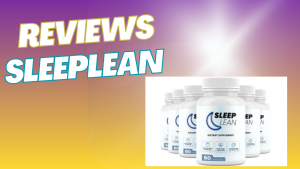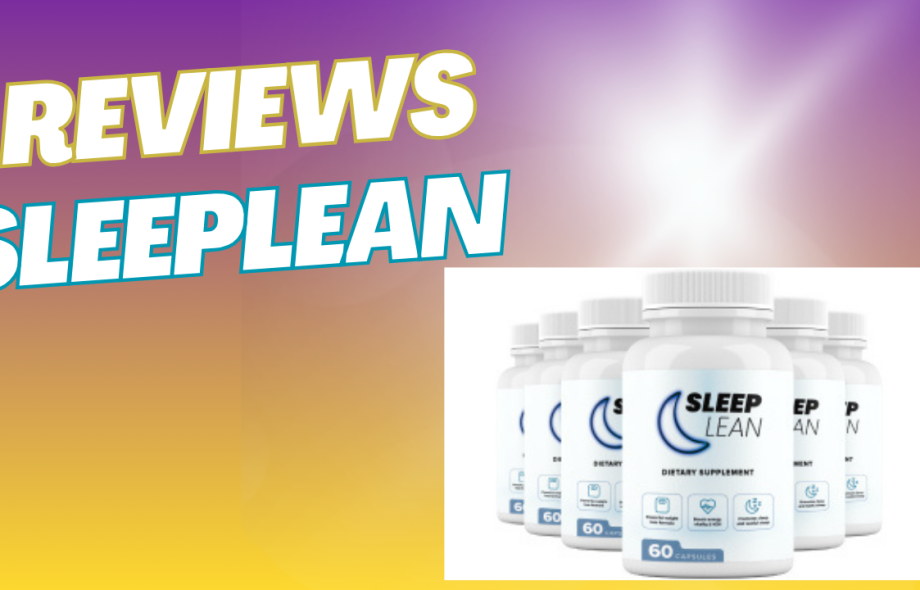
Can SleepLean Help with More Than Just Bedtime?
When most people search for SleepLean reviews, they’re focused on nighttime rest. They want to know: does it help me fall asleep, stay asleep, and wake up refreshed?
But hidden inside dozens of customer reports is another question: Can SleepLean also improve afternoon naps?
For shift workers, parents of young kids, students, and anyone who relies on quick naps to recharge, this is a big deal. Afternoon sleep isn’t the same as nighttime sleep. The body clock, hormone levels, and even digestion all behave differently. So how does SleepLean fit in?
This article brings together real customer experiences, science-backed insights, and practical tips to uncover how SleepLean influences napping — both the good and the challenging.
Visit Official Website to get Sleeplean
Why Afternoon Naps Are Different from Nighttime Sleep
Before diving into reviews, it’s important to understand why naps are a unique case:
Shorter duration: Naps usually last 20–60 minutes, not 7–9 hours.
Different sleep stages: You often enter light sleep and sometimes REM, but rarely deep non-REM unless the nap is long.
Circadian rhythm: Afternoon naps occur when melatonin levels are naturally low.
Potential grogginess: Waking mid-cycle can leave you feeling sluggish.
That means any supplement, including SleepLean, might affect naps differently than nighttime sleep.
What Customers Are Saying: SleepLean for Afternoon Rest
From verified SleepLean reviews, three themes stand out:
1. More Relaxed Before Naps
Several users note that taking a small dose of SleepLean before an afternoon nap makes it easier to switch off.
“I used to toss and turn before short naps, but half a capsule of SleepLean calms me enough to drift off.”
2. Deeper Nap Quality
Some customers report feeling like their naps are more restorative — as if they had a full sleep cycle compressed into a shorter window.
“Even a 30-minute nap feels like I slept for hours. I wake up refreshed instead of foggy.”
3. Mixed Experiences with Grogginess
Not everyone finds it perfect for naps. A handful of users mention feeling too drowsy if they take it too close to evening or before long naps.
“It works too well! I only wanted a 20-minute nap and ended up out cold for two hours.”
The Science: Why SleepLean May Impact Naps
SleepLean’s formula contains ingredients that target both sleep onset and metabolic calmness. Here’s how those might play into naps:
Melatonin (low dose): Can nudge the brain toward sleep faster, even in the afternoon when levels are naturally low.
Herbal relaxants (chamomile, lemon balm, ashwagandha): Reduce stress and racing thoughts, making short naps more effective.
Craving control agents (cinnamon, chromium): Prevent the sugar crashes that often interfere with daytime rest.
The combination means SleepLean can create the conditions for a quicker, smoother nap transition, but dosage and timing matter.
How Customers Use SleepLean for Naps
Based on reviews, here are three popular approaches:
A. Half-Dose Strategy
Many nap-focused users don’t take the full recommended nighttime dose. Instead, they split a capsule.
Benefit: Enough relaxation to nap.
Risk: Too much melatonin may disrupt evening sleep.
B. Full Dose with Longer Nap
Some shift workers who use naps as “mini-sleep” sessions take the full dose.
Benefit: Feels like a night’s sleep in 90 minutes.
Risk: Harder to wake up quickly.
C. Occasional Use Only
Others save SleepLean for stressful days when naps feel impossible.
Benefit: Extra help when needed.
Risk: Less consistency in results.
Afternoon Nap Challenges SleepLean Helps Solve
Customers report that SleepLean assists with several nap-related issues:
Racing Thoughts – Calming herbs help people switch off faster.
Stress Fatigue – Shift workers feel less wired when trying to nap at odd hours.
Post-Lunch Cravings – Sugar cravings often derail afternoon rest, and SleepLean reduces this urge.
Nap Inefficiency – People feel their naps are “deeper” and more restorative.
Potential Downsides Customers Mention
Of course, not every review is glowing. Some mention:
Too much drowsiness if naps go longer than intended.
Difficulty falling asleep at night if naps are taken too late with SleepLean.
Trial-and-error needed to find the right dose for daytime use.
These reviews highlight the importance of customizing use based on your body and schedule.
Expert Perspective: Is SleepLean Meant for Naps?
While most supplements like SleepLean are designed for nighttime use, experts agree the ingredients are safe for occasional daytime use. The key is:
Keep naps short (20–45 minutes).
Use smaller doses to avoid night disruption.
Track how your body responds over several days.
Tips for Using SleepLean with Afternoon Naps
Start Small: Try a half dose 30 minutes before napping.
Nap Earlier: Aim before 3 PM to avoid interfering with nighttime rest.
Set an Alarm: Prevent oversleeping and grogginess.
Combine with Routine: Dark room, cool temperature, and no screens make SleepLean more effective.
Evaluate Need: Not everyone requires supplements for naps — use it strategically.
Real-Life User Snapshots
Sarah, Nurse: “Night shifts ruin me. A capsule of SleepLean before my 2 PM nap feels like hitting the reset button.”
James, Student: “I only use half. Otherwise, I’d sleep way too long. But it stops my brain from buzzing when I try to nap.”
Linda, New Mom: “It doesn’t make me dependent, but on rough days, it helps me nap while the baby naps.”
Final Takeaway: SleepLean Reviews on Afternoon Naps
So, does SleepLean help with afternoon naps?
Based on reviews, the answer is yes — but with conditions. Customers find:
Short naps become easier and more refreshing.
Stress and cravings don’t get in the way.
Timing and dosage are critical to avoid grogginess.
For anyone struggling to make naps restorative, SleepLean can be an ally. But the best results come from listening to your body, starting small, and keeping naps within the natural rhythm of your day.
 :
https://www.pinterest.com/rudyzenreviews/
:
https://www.pinterest.com/rudyzenreviews/

